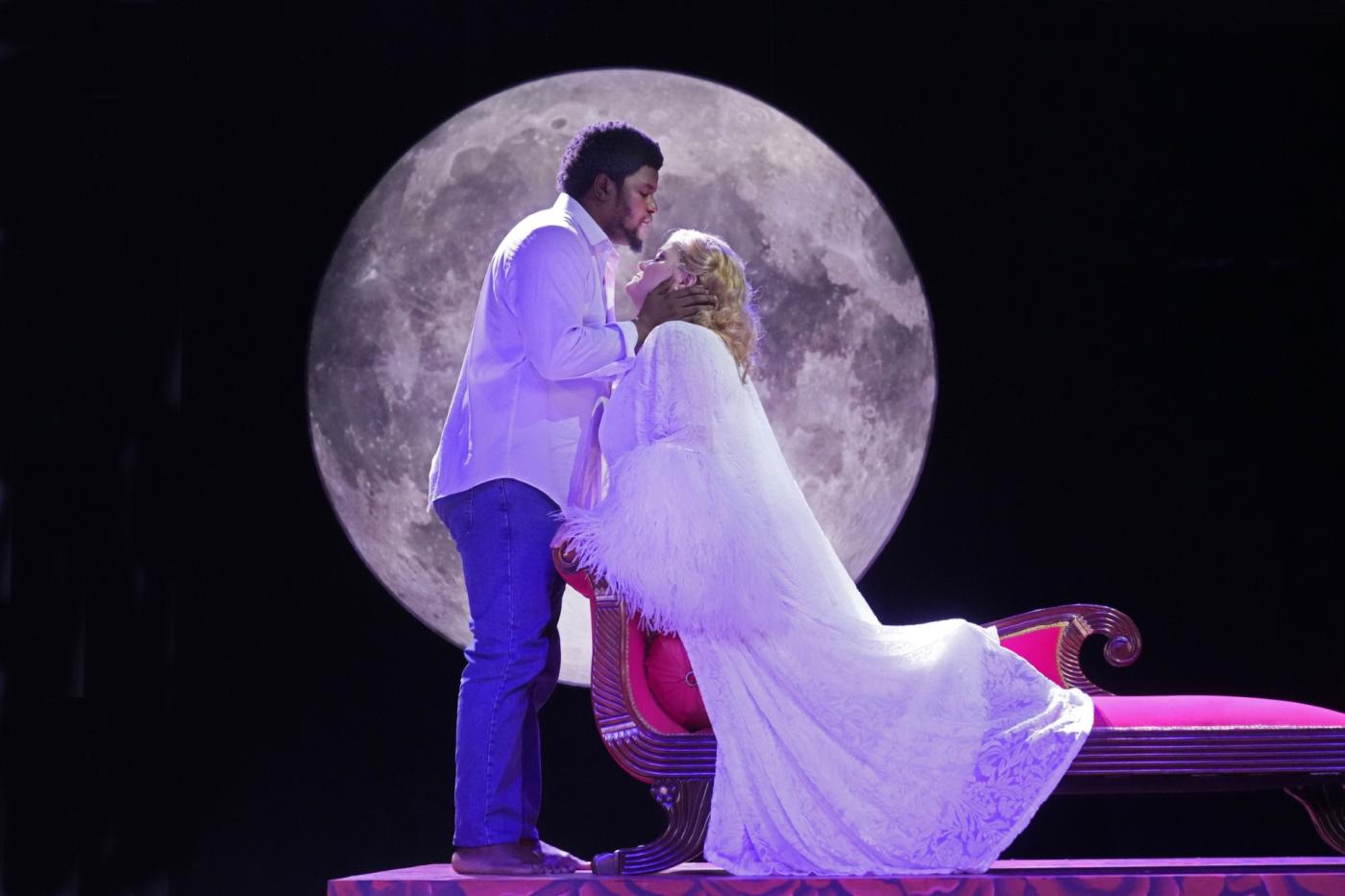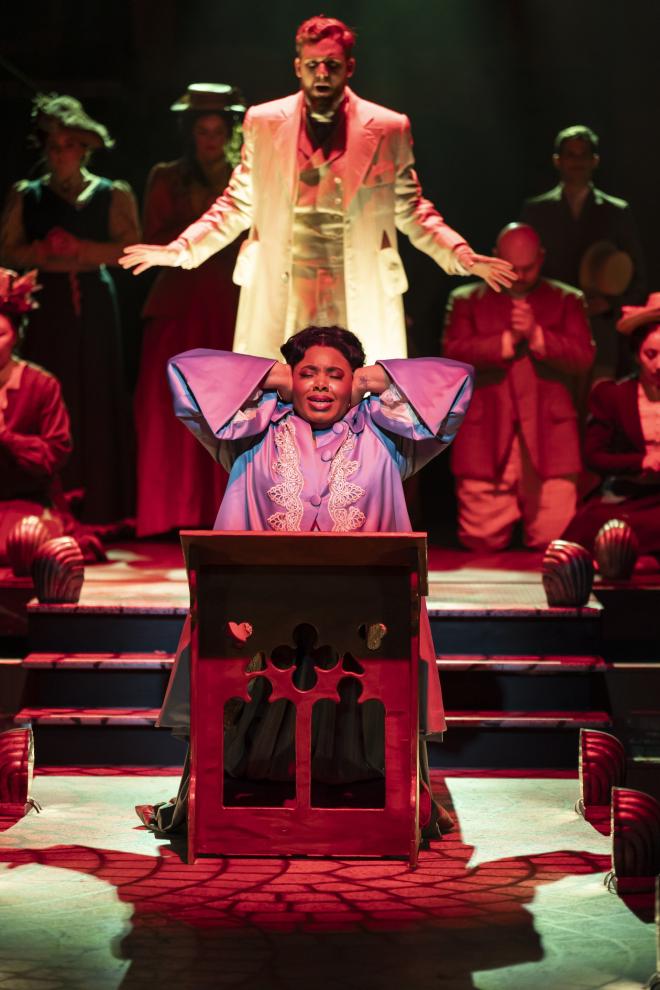Upon the conclusion of the Metropolitan Opera season on June 8, WETA Classical is to continue its tradition of presenting performances from Wolf Trap Opera – this month, two recorded productions from Wolf Trap Opera’s 2023 season at The Barns.
Wolf Trap Opera is a summer residency program of Wolf Trap Foundation for the Performing Arts, designed to give emerging professional singers important experience and career development. Some of today’s major singers on the international stage have performed under this program. WTO selects its artists from among the best classical vocalists in the country and places them in repertoire that showcases their talent.
George Frideric Handel’s Semele airs June 15. Handel composed Semele in 1744 as an oratorio -- a staged presentation typically based on sacred text with vocal soloists, a substantial chorus, orchestra and minimal staging. But oratorio was sometimes based on secular text, as in Semele. Today, Semeles is often performed as a fully-stage opera, the form that Wolf Trap Opera used.
The story is based on a Roman myth of the mortal and pleasure-seeking Semele, who enters into an affair with the Roman god Jupiter. Her vanity and ambition drive her to demand that Jupiter transform her into an immortal goddess. Jupiter’s wife, the goddess Juno, seeks revenge on the lovers. Using deceit and disguise, Juno advises Semele to force Jupiter to comply with Semele’s wish, which causes Semele’s destruction. From Semele’s ashes arose Bacchus, the god of wine and merriment. The story had been developed into an opera libretto by the 18th century poet and playwright William Congreve, which Handel adapted for his treatment of Semele.
When it premiered in London’s Covent Garden during the Lenten period of 1744, Semele was greeted with puzzlement by the audiences -- a secular oratorio composed during a period when Handel primarily wrote sacred oratorio, and one with a theme of desire, adultery and revenge. It was staged only four times and then neglected until its revival in the 20th century. It’s now widely-performed and recorded by world-class artists, owing to Handel’s transcendent orchestration and heavenly melodies, including the beautiful tenor aria, “Where’er You Walk”. In her remarks during the intermission of this broadcast, Lee Anne Myslewski, Vice President of Opera and Classical Programming for Wolf Trap, tells us that Lunga Eric Hallam, who sang the role of Jupiter, auditioned for Wolf Trap Opera with “Where’er You Walk” even before Wolf Trap Opera decided to present Semele, due to his personal connection to the aria. His moving rendition landed him this significant role.
In addition to Hallam, this Wolf Trap Opera production, showcases Esther Tonea in the title role and Lunga Eric Hallam as Jupiter. Timothy Long conducted.
June 22 is the presentation of Faust by Charles Gounod. The Faust legend is well-known: an aging scholar, depressed and disillusioned with life, makes a deal with Mephistopheles, an agent of the Devil, to sell his soul in exchange for earthly pleasures in the form of power, knowledge, wealth or youth. Variations on the base story have emerged through the ages, but the seductive theme has endured and inspired a multitude of musical, literary and cinematic works, chief among them the play Faust by Goethe.
Was Faust a real person or just a fictitious character? According to historical records, a man named Johann Georg Faust lived in 16th century Germany as an itinerant magician and astrologer. He claimed that the devil was his accomplice, a claim likely intended to further his notoriety. Although some records refer to him as a respectable scientist, most cast a suspicious light on him and his mysterious activities. It’s thought that this Faust was the inspiration for the Faustian legend who know today.
Gounod’s Faust centers on Faust’s covenant with Mephistopheles, an agent of the devil and the resulting ill-fated romance between Faust and the young Marguerite. Events gradually cascade into tragedy that leaves Marguerite as the innocent victim of Faust’s nefarious pact with Mephistopheles. Yet she ultimately emerges victorious in an ending that Gounod, a deeply religious man, composed with the radiance of salvation.
Faust is considered to be Gounod’s masterpiece, full of powerful orchestration that masterfully blends turbulence and sorrow with tender, affectionate moments.
This Wolf Trap Opera production features Eric Taylor as Faust, William Clay Thompson as Mephistopheles, and Brittany Logan as Marguerite. Geoffrey McDonald conducted.
Experience these riveting operas with us, Saturdays at 1:00 p.m. on WETA Classical’s Opera Matinee.
WETA Passport
Stream tens of thousands of hours of your PBS and local favorites with WETA Passport whenever and wherever you want. Catch up on a single episode or binge-watch full seasons before they air on TV.

